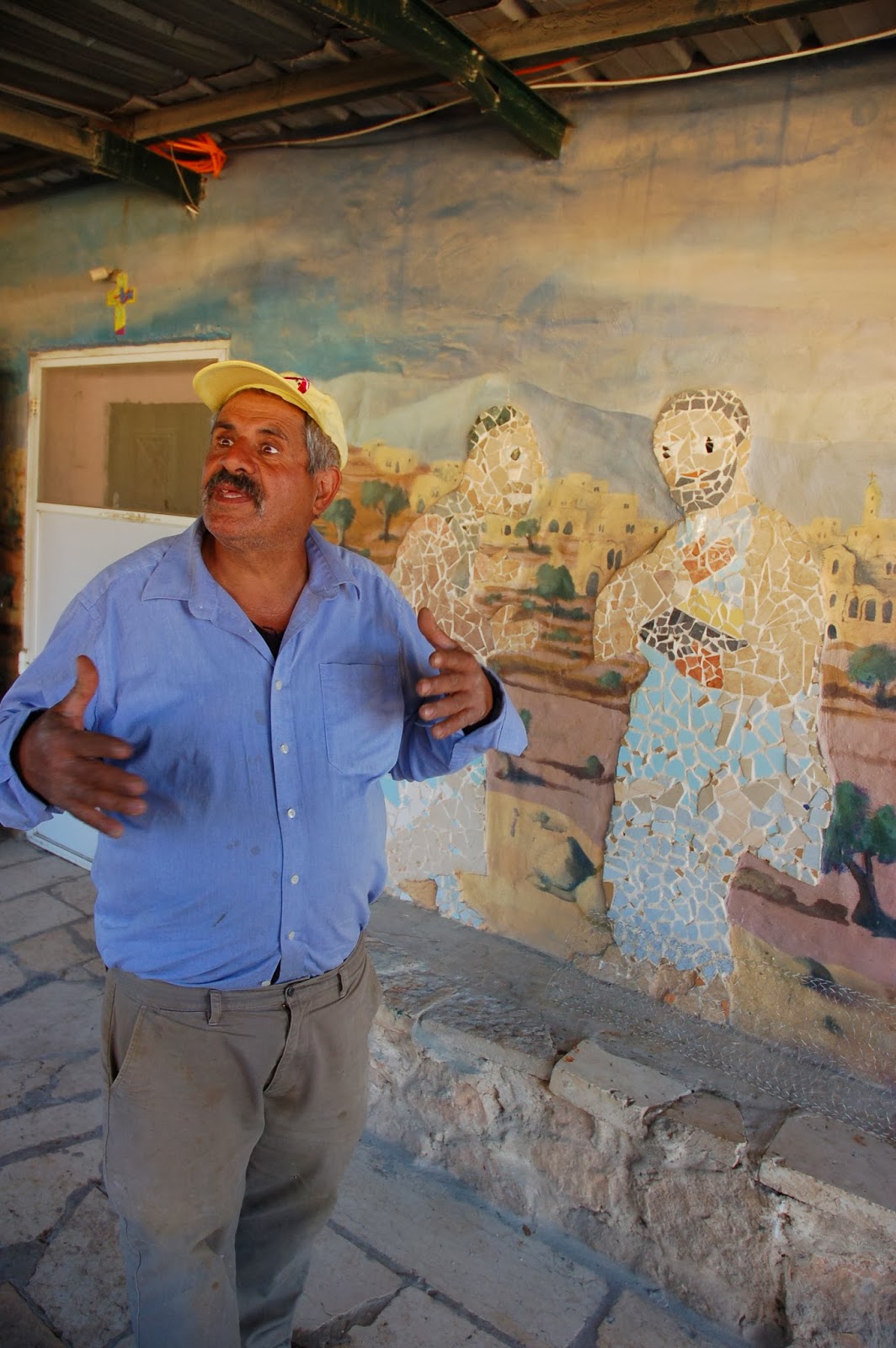Here we met Abu Al Abed with his family and 12 children. We transferred to his 4x4 and set off into the desert. This was "off-road" at its most extreme and I thought we were on the Dakar rally. We went up and down steep inclines and across dry wadis.
We learned that Abu Al Abed spent 13 years roaming the desert with his camels with no fixed home before he settled down in his present house.
These camels now belong to Abu Al Abed's brother. On the way back he stopped and milked one of the camels so that we could taste camel's milk. I passed on that one!
After an hour of driving, we reached the dead sea, or rather the 1000 foot cliff overlooking the dead sea. Abu Al Abed climbed up on the rocks above the waterfall, now dry, but over which the water will gush in the winter. Dan is a mountain climber and was quite at home climbing about the huge drop. I decided to stay put and watch.
We drove on to a place where the cliff top was flatter. However, Abu Al Abed then dragged a dead tree, a kettle and a container of water and disappeared over the each. Apparently this was out of the wind, but I had to take their word for that, as there was no way I was going down there. They were kind and brought me back a nice cup of tea.
Abu Al Abed was amazing - he was like a mountain goat leaping from rock to rock. Then came the time for Muslim prayer and he knelt down facing east to say his prayers. You would not believe the rocky paths he drove down, with precipitous drops and slopes. And then it got dark, and he seemed completely at ease driving through this barren landscape at night, finding the dirt tracks and hurtling along. I certainly said a few prayers today too.
A really exciting afternoon and something I will always remember.







































